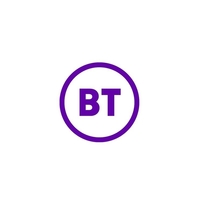Broadband
Slow internet? Confused about your broadband rights? Check out Resolver's guide to broadband.
Advertisement

Your rights
It’s often difficult to know when you’re right to be complaining about your internet speeds – it sometimes seems that it’s impossible to fix slow internet, but this isn’t the case!
Our general rule is this: if it feels unfair, complain!
When you’re sold broadband, you enter into a contract with your provider – this means they have certain obligations when it comes to providing the service they’ve sold you.
Your rights are protected by Ofcom, the Advertising Standards Agency, the Consumer Rights Act and the Consumer Contracts Regulations.
Most broadband providers will gladly resolve your problems – it may just take a little help from Resolver!
What can I do about slow internet?
The rules say that your broadband provider has to supply a service that works exactly as described in your contract.
This means that you've got the right to complain if you’re getting speeds slower than advertised.
First, register the problem with your broadband provider through Resolver.
Use Resolver to register every incident or outage with your broadband provider.
Broadband providers often have data that shows your area has experienced perfect service – even when it wasn't true for you! Check your broadband speed using a free broadband speed checker.
Broadband.co.uk provides a free speed checker that is Ofcom-approved. Google has launched one, too!
Take a screenshot of the result to send to your provider.
What are the rules for average download speeds?
Ofcom has shown that the average download speed in the UK is 34.6Mbit/s at peak times (8-10 pm).
Outside peak times, it's 39.1Mbit/s.
The Advertising Standards Authority has rules around broadband speeds in adverts. They say that broadband providers have to show the 'median average speed' for peak times.
Any speed claims have to be based on the download speed available to at least 50% of customers at peak time.
Ofcom’s voluntary broadband code of practice
If you’re a customer of the following companies, you may be protected by Ofcom’s Voluntary Code of Practice.
The code says companies should provide accurate and transparent speed information.
Residential Providers signed up to the plan include: BT, Sky, Virgin Media, KC, EE, Talk Talk, Vodafone, Zen Internet.
Business Providers signed up to the plan are: BT Business, Talk Talk Business, Virgin Media, Daisy Communications, KCOM (Hull business), XLN, Zen.
If your broadband speeds drop below a certain level, you may be able to exit your contract without charge. That's if your provider cannot resolve critical problems, though.
You have to give them a reasonable amount of time to fix the problem. This might mean several visits from engineers.
The minimum speed is the highest speed available to the slowest 10 per cent of households signed up to the plan.
In most cases, this is pretty slow! The best way to check this is by using a free speed checker (see above!)
My broadband has gone down!
Your provider is obliged to fix any faults with your broadband. Get in touch with your provider via Resolver as soon as you notice a problem.
Broadband providers should respond to your complaint within a reasonable length of time. It isn’t fair for you to keep paying for a service you’re not receiving, and you’re correct to be complaining!
If the provider says they’ll take a long time to send out an engineer, you can use Resolver to escalate your complaint. It is important to make a log of the results of any visit from an engineer. In some cases, it has taken multiple visits for a problem to be resolved. We recommend that you make a note of this, as it will serve as evidence when you escalate your complaint.
It is normally in a broadband provider’s best interests to fix your problem quickly. It may be due to a problem with their infrastructure. You shouldn’t have to pay for problems caused by your provider’s infrastructure.

In summary
- Under Ofcom’s voluntary scheme, customers of BT, Sky, TalkTalk, Virgin Media and Zen Internet will be automatically compensated if they experience delayed repairs.
- If your service has stopped working and is not fully fixed after two full working days, you get £8 for every calendar day that the service isn’t repaired.
- If an engineer doesn’t turn up for an appointment or the appointment is cancelled with less than 24 hours’ notice, you get £25.
- If your service is due to start on a certain date but is delayed, you’re due £5 for every calendar day it’s delayed including the missed start date.
Does my broadband provider have to reply to my complaint?
Yes! When you sign up to a broadband service, you effectively enter into a contract with your provider. This means that they have to do their best to honour the terms of the contract. If you find that they’re not doing this (after you’ve given them every chance to fix the problem), you should consider contacting an ADR. These independent organisations resolve problems that can’t be fixed via normal channels.
Engineers and repairs
Under Ofcom’s voluntary scheme, customers of BT, Sky, TalkTalk, Virgin Media and Zen Internet will be automatically compensated if they experience missed engineer appointments.
If your service has stopped working and is not fully fixed after two full working days, you get £8 for every calendar day that the service isn’t repaired.
If an engineer doesn’t turn up for an appointment or the appointment is cancelled with less than 24 hours’ notice, you get £25.
If your service is due to start on a certain date but is delayed, you’re due £5 for every calendar day it’s delayed including the missed start date.
What if an engineer damages my property?
If an engineer causes damage to your property, you should raise your concern with the engineer. Contact your broadband supplier and alert them to this also. It would be advisable to take photographs to use as evidence, in case of a dispute. If you are a tenant, you should contact your landlord to let them know of the situation. Your broadband supplier should arrange an inspection at a time that suits you both, and make or pay for any necessary repairs.
My installation has been delayed!
Once you have purchased your service, your provider should confirm when installation will take place. They should have a code of practice in place, which details how long you should have to wait for installation. Should they not adhere to their stated deadlines, you should make a complaint. Where you are waiting for broadband to be installed a phone line is usually essential. If the phone line is being provided by a different supplier, then contact the phone line provider to complain.
Both companies should be able to liaise to resolve the issue, but it is often amazing how wrong these issues can go. Even if an installation timescale was not agreed at the outset, a service still should be carried out within a reasonable timeframe and this should be no more than three weeks in our view. If a phone line is already in place and it needs activating this should be 48 hours or less. If it has taken longer than you think is acceptable, contact your provider for information as to why it has taken so long and when the installation will take place.
Customer Services
I've been on hold for ages!
If you find that you’ve been unable to contact your provider’s customer services call centre, you can use Resolver to contact the company and inform them of the problem. You should explain clearly what happened, giving details of the time of the incident. Trading standards allow 14 days for a response.
You may also want to consider calling outside of peak times – our experience is that midday is a good time to try busy call centres!
If the broadband provider isn’t able to resolve the problem to your satisfaction, you can make a request under subject access for the information kept on file about you and for any recorded calls concerning your issue. The company can charge you £10 for this, but it will provide useful information in the event that you need to escalate your problem!
How to succeed with call centres
If you find that you’re struggling to get the help you need through call centres, we recommend that you tell the customer service agent that you want to log a formal complaint through their head office! Most broadband suppliers want to fix your issue internally – it may just require a bit of prompting!
I'm suddenly paying more for my broadband
Your broadband service provider should make any charges clear to you before you sign your contract. There shouldn’t be any hidden charges, and you should be notified of any increases in price that are allowed for under the contract. If you find that you have been unfairly charged, you should consider using Resolver to contact your provider.
How do I cancel my broadband contract?
If you want to cancel your broadband contract, you can use Resolver to contact your ISP. Be warned that you have to follow the cancellation terms in your contract! These may mean you’ll be charged, normally for the outstanding amount of the contract – unless, of course, you’re in the first 14 days of your contract, your ISP has increased your monthly bill (more than would account for inflation), your ISP has broken the terms of your contract, or you’re no longer within the minimum terms of your contract.
In some cases, you may think the terms of your contract are unfair. Unfair contract terms are forbidden under the Unfair Contract Terms Act, meaning you will not be held to an unfair contract. This is tricky, however, as only a court can ultimately rule that a contract is unfair. We advise you to seek all other forms of resolution first.
If you think your broadband provider is trying to charge you unfairly for terminating your contract, Resolver can help you file your complaint with our free tool. Generally, we advise you to always read the small print. Broadband providers should always be honest and clear regarding any charges resulting from cancellation.
My contract ended and I didn't know or have a chance to switch!
Telecoms and pay TV companies have to write to customers at least 10 days before their contract ends, to warn that it is expiring and setting out what you will pay in future.
Ofcom says alerts must be sent by text, email or letter.
They must include:
- The contract end date.
- The price paid before this date.
- Any changes to the service and price paid at the end of this period.
- Information about any notice period required to end the contract.
- The best deals offered by the provider, including telling loyal customers what prices are available to new customers.
I'm worried about my personal information
Broadband suppliers have to take steps to protect your information. If you suspect that they have not done this, you have the right to make a complaint. This is fairly rare, though – broadband providers generally want to avoid any criminal charges!
Can I add a name to my account?
If you find that you need to add a name to your account, you should use Resolver to get in touch with your service provider.
How do I change my address?
Give your provider’s billing department a call! They should be able to walk you through the process without any problems. Very rarely, the broadband provider will insist that you terminate the account and start again with a new one. This doesn’t happen often, so don’t panic!
How can I downgrade my package?
It should be easy to downgrade your services, although it will depend whether you are tied into a contract. If this is the case you will need to pay an early termination fee, unless your service provider considers your new services to be an equal-value alternative. If you are not in a fixed-contract period then you may need to give sufficient notice to change (normally 28 days). The period of notice required will be set out in your contract of services. Contact your supplier who will be able to advise you regarding whether you must give notice that you wish to downgrade. If you are unhappy with your provider’s service, you should contact their customer services department and give clear details of your case - such as what happened, when, and why you are complaining.
Be aware that your provider may consider the downgrade the start of a new contract period – you may be liable for charges if you choose to switch provider. We advise you to always read the small print! Your broadband provider should be upfront with you regarding any charges.
Broadband data usage limits
Some broadband packages apply a limit on the amount of data you can upload or download from the internet. The amount of data usage measured on your line can be affected by the number of devices being used on your network at any one point, and the kind of things you’re doing – if you’re using video streaming services, for example, you’ll use more data than someone who only uses the internet to send emails.
If you feel that your broadband provider is allowing you less broadband usage than you are contractually entitled to, you should use Resolver to launch a complaint.
I've paid my bills but I've received a court summons!
If you receive a court claim after you have paid any arrears, you should contact your broadband supplier immediately to prevent any further action being taken. The court claim may have been issued before your payment was processed. You should have either a receipt number or payment code from your payment. Give this to your supplier, along with any other documentation proving your payment. You may be subject to an increased fee to compensate the supplier for the expense of obtaining a summons, and will be obliged to pay this as well in order to avoid further action. If you consider these fees to be excessive, you should write to the customer service department of your supplier, giving details about what you are complaining about, when it occurred, and why you consider the fees to be excessive.
I've been billed by a previous supplier!
We advise you to get in contact as soon as possible! Let your previous provider know that they’ve incorrectly charged you and send them any evidence you might have (this should include the date you switched services). It is possible that the bill represents a termination fee included in your contract of services – if this is the case, you will most likely have to pay. It may also represent payment of a debt that you have previously agreed to pay back to the supplier by instalments. You should contact your previous provider to check that this isn’t the case.
I've received insufficient compensation!
If you believe you've received insufficient compensation in resolution of a problem, you should use Resolver to contact your provider's customer services department.
My direct debit payment has bounced!
If your direct debit payment has bounced, you should contact your broadband provider immediately as you may incur a charge for the bounced payment – and, annoyingly, you might even incur a late payment charge as well! Some companies will try to re-take the payment 10 days later – double-check your supplier’s billing policy. If you think you have been unfairly charged for a bounced or late payment, you should contact your broadband provider’s customer services department, giving clear details of your case (such as what happened, when it happened, and why you are complaining).
Advertisement
Helping you with Broadband services
You can raise issues with 53 companies in Broadband services
Key companies include:














